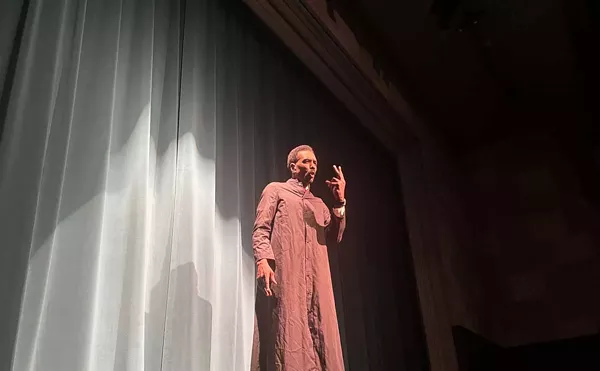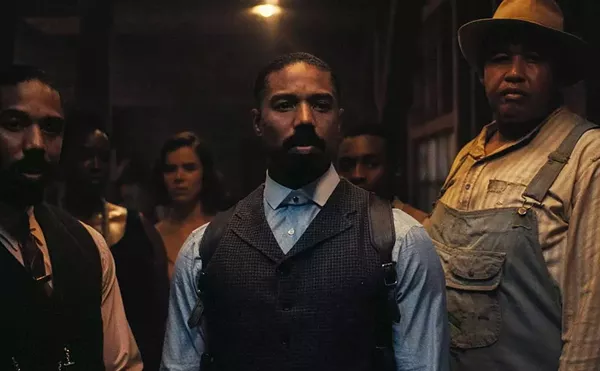
Audio By Carbonatix
[
{
"name": "GPT - Leaderboard - Inline - Content",
"component": "35519556",
"insertPoint": "5th",
"startingPoint": "3",
"requiredCountToDisplay": "3",
"maxInsertions": 100,
"adList": [
{
"adPreset": "LeaderboardInline"
}
]
}
]
How do you address multiculturalism from a lily-white armchair? Director Laurent Cantet's The Class offers up an engrossing but ultimately incomplete answer to the question, but still earns points for trying.
With this, his fourth effort, the French filmmaker solidifies himself as an auteur who trades in didactic social realism. Never a big crowd-pleaser, his films have appeal because of their contemplative and understated style, softening the bludgeon of liberal sentiment and outrage that fuels their subject matter. And while The Class doesn't deviate from Cantet's progressive social messaging, its pseudo-documentary affectations do represent a departure in both style and approach.
Based on a memoir by François Bégaudeau (who plays a fictionalized version of himself in the movie), Cantet generated his script by intensively workshopping the piece with young non-actors who spent nine months improvising with Bégaudeau as three digital cameras recorded their every interaction. The result is a kinetic, you-are-there classroom experience that captures the unsteady give-and-take of a flawed but earnest teacher and his too-rowdy students. The teens aren't playing themselves (though they share the same first names as the "characters") but are rather replicating moments from Bégaudeau's teaching experience, stepping on each other's conversations and challenging his authority so naturally that it's hard to believe you're not watching a straight-up documentary.
The effect is unsentimental, acutely observed and messily spontaneous, offering an energetic slice-of-life examination of a young Parisian teacher struggling to reach his class of racially mixed junior high school students. When you consider the long list of one-teacher-can-make-a-difference films (Blackboard Jungle, Freedom Writers, Stand and Deliver, Dead Poets Society, Dangerous Minds, etc.) it's clear how much more convincing and authentic Cantet's approach is. But behind the spontaneity is a deliberately crafted script that follows the expected "be your best self" formula.
The difference is that Bégaudeau's teacher makes mistakes and fumbles, displaying very human moments that compromise whatever trust he may have earned from his colorfully insubordinate students, most of whom are children of immigrants. Mini-dramas erupt over the course of the film (especially in its contrived and mishandled third act) but it's a girl named Esmeralda (Esmeralda Ouertani) who best captures the shifting power dynamics of the classroom, cannily challenging Bégaudeau's biases, often pulling the pedagogical carpet out from under his feet.
The virtue of The Class is that it demythologizes much of the drivel Hollywood's "inspirational teacher" movies trade in. Instead of students ridiculously rapping to Shakespeare or infallibly inspirational teachers enlightening every member of their class, Cantet acknowledges that teachers have feet of clay, bureaucracies undermine their goals, cultural conflict is inevitable, and some kids are simply beyond reach.
And yet the film's strengths reveal its inherent dysfunction: Cantet never views Bégaudeau's mission as anything less than noble and righteous. Yes, he may have flaws as a teacher, but The Class never questions Bégaudeau's motives and assumptions, nor considers that his impact may actually be harmful to some. In focusing so heavily on racial identity, the film misses the importance and complexities of class and economic status. At its heart, Cantet's film reinforces the notion that it's the white man's burden to help save the "other" from itself. For all its social motivation, The Class ultimately offers the perspective — as sensitive as it might be — of only one class: the ruling class.
Showing at Landmark's Main Art Theatre, 118 N. Main St., Royal Oak; 248-263-2111.
Jeff Meyers writes about film for Metro Times. Send comments to letters@metrotimes.com.





